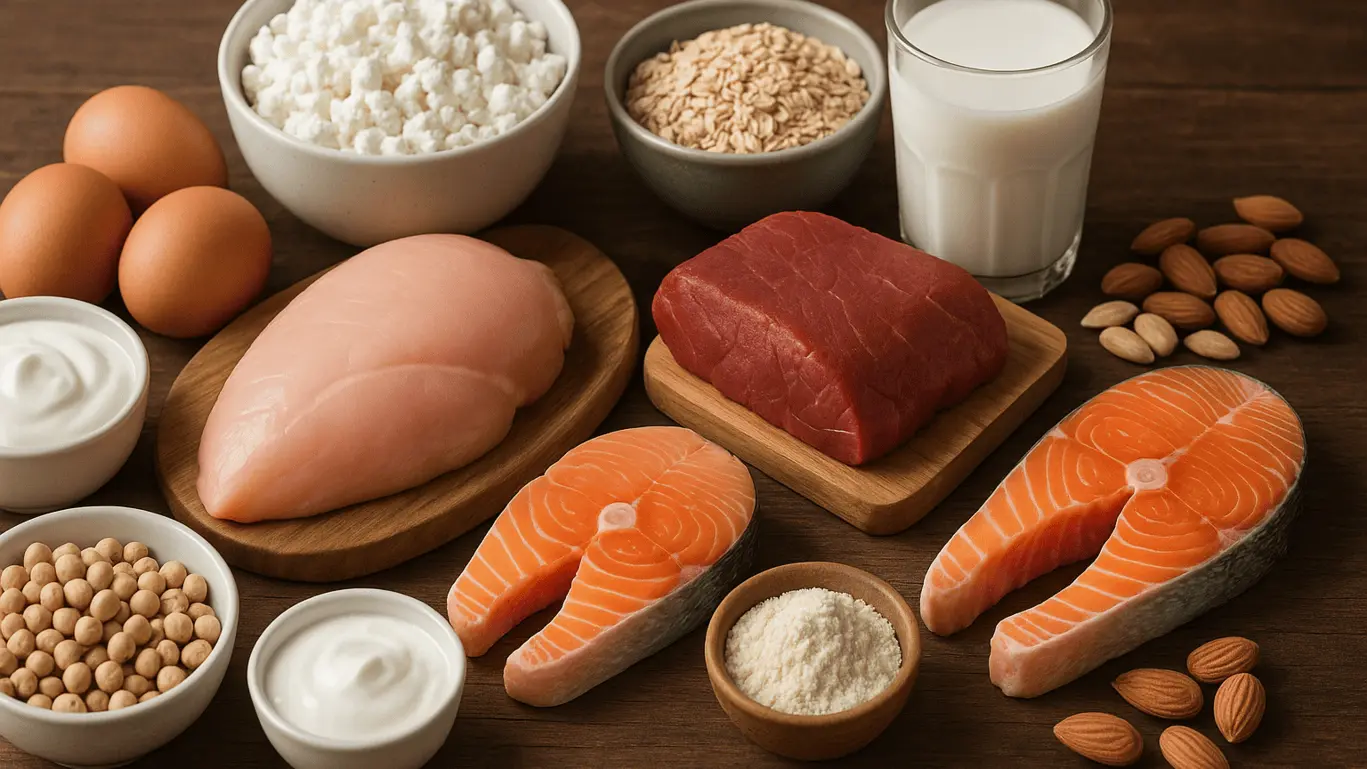In 2025, the world of nutrition and wellness is undergoing a transformation, and at the heart of this shift is the growing popularity of protein-centric diets.
No longer limited to athletes and bodybuilders, high-protein lifestyles have gone mainstream, captivating the attention of everyday individuals looking to improve their health, manage weight, and optimize their energy levels.
The rise of protein-rich diets is more than just a trend — it represents a broader cultural movement focused on functional food, personalized nutrition, and science-backed wellness.
Why Protein? Understanding the Foundation
Protein is one of the three essential macronutrients (alongside fats and carbohydrates) that our bodies require to function properly. It plays a crucial role in building and repairing tissues, producing enzymes and hormones, and maintaining muscle mass.
Unlike fats and carbs, protein has a higher thermic effect, which means the body burns more calories digesting it. This metabolic advantage has made protein the centerpiece of many modern diet plans.
From Niche to Mainstream: How Protein Became Popular
The shift towards protein-rich diets can be traced to multiple intersecting factors:
- Increased Awareness of Health and Wellness: As more people prioritize health, they seek diets that support longevity, muscle health, and metabolic function.
- Weight Management Goals: High-protein diets help increase satiety, reduce cravings, and support lean muscle maintenance during weight loss.
- Rise of Fitness Culture and Wearables: Devices like Fitbit and Apple Watch have empowered users to track calories and macros, pushing protein intake into the spotlight.
- Science-Backed Evidence: Numerous studies confirm that higher protein intake can aid in weight loss, improve body composition, and prevent muscle wasting, especially in older adults.
Protein for Everyone: Who’s Eating More Protein?
In 2025, the appeal of protein extends far beyond the gym. Here are the main demographics adopting protein-centric diets:
- Busy Professionals: Looking for quick and nutritious meals that support their energy and focus.
- Women Over 40: Particularly interested in protein to combat age-related muscle loss and hormonal changes.
- Weight Watchers: Finding high-protein snacks and meals helpful for satiety and appetite control.
- Plant-Based Eaters: Seeking protein from legumes, tofu, tempeh, and protein powders.
- Seniors: Needing protein to maintain strength and independence as they age.
Trending Protein Sources in 2025
The demand for protein has led to innovation across food and beverage sectors. Here are the top protein sources trending now:
- Traditional Animal Protein: Chicken, eggs, fish, lean beef, and Greek yogurt remain staples.
- Plant-Based Protein: Pea, soy, lentils, quinoa, hemp seeds, and chickpeas are on the rise.
- Alternative Protein: Insect-based protein, lab-grown meat, and algae protein are gaining niche popularity.
- Protein-Infused Products: From protein water to high-protein coffee and cereal, manufacturers are fortifying everyday items with protein.
Benefits of a High-Protein Diet
- Muscle Growth and Maintenance: Essential for strength training and active individuals.
- Improved Metabolism: Higher protein intake can enhance resting metabolic rate.
- Weight Loss Support: Protein promotes fullness and helps prevent overeating.
- Bone Health: Protein supports bone density, especially when paired with resistance exercise.
- Healthy Aging: Prevents sarcopenia (age-related muscle loss), keeping seniors mobile and strong.
Potential Downsides and Considerations
While high-protein diets offer numerous benefits, balance is key. Too much protein, especially from animal sources, can lead to:
- Kidney strain in individuals with preexisting kidney issues.
- Nutrient imbalances if carbs or fats are overly restricted.
- Environmental concerns with the production of animal-based proteins.
It’s important to work with a dietitian or healthcare provider to tailor a protein-centric plan that fits individual needs and health conditions.
How Much Protein Do You Really Need?
The Recommended Dietary Allowance (RDA) for protein is 0.8 grams per kilogram of body weight. However, experts often recommend:
- 1.2 to 2.0 grams/kg for active individuals or older adults.
- Higher intakes for those on weight loss or muscle-building regimens.
For a 70 kg adult (about 154 pounds), this translates to roughly 84 to 140 grams of protein per day depending on activity level.
Sample High-Protein Meal Plan
Breakfast: Greek yogurt with berries and chia seeds (20g protein)
Lunch: Grilled chicken salad with quinoa and avocado (35g protein)
Snack: Protein bar or boiled eggs (15g protein)
Dinner: Baked salmon with sweet potatoes and steamed broccoli (40g protein)
Evening Snack: Cottage cheese with almonds (20g protein)
Protein on the Go: Convenience Foods on the Rise
Busy lifestyles have driven innovation in portable, high-protein products:
- Ready-to-drink protein shakes
- Protein-rich granola bars
- Jerky and meat sticks
- Protein-packed frozen meals
These options make it easier than ever to meet daily protein goals.
Social Media’s Role in Promoting Protein
TikTok, Instagram, and YouTube are full of high-protein recipe videos, challenges, and “What I Eat in a Day” content from fitness influencers. Hashtags like #highproteindiet, #proteinmealprep, and #fitfood have inspired millions to rethink their diets.
The Future of Protein: What to Expect
Looking ahead, protein will remain a dominant theme in health and wellness. Emerging trends include:
- Personalized protein intake via apps and DNA testing
- Sustainable protein production through vertical farming and fermentation
- Medical-grade protein diets for chronic disease management
Conclusion
The mainstream adoption of protein-centric diets in 2025 is a testament to the growing importance of functional, personalized nutrition. Whether your goal is to lose weight, gain muscle, age gracefully, or simply feel more energized, increasing your protein intake could be a game-changer. As always, balance and variety are key, and the best diet is the one that supports your unique lifestyle and goals.





